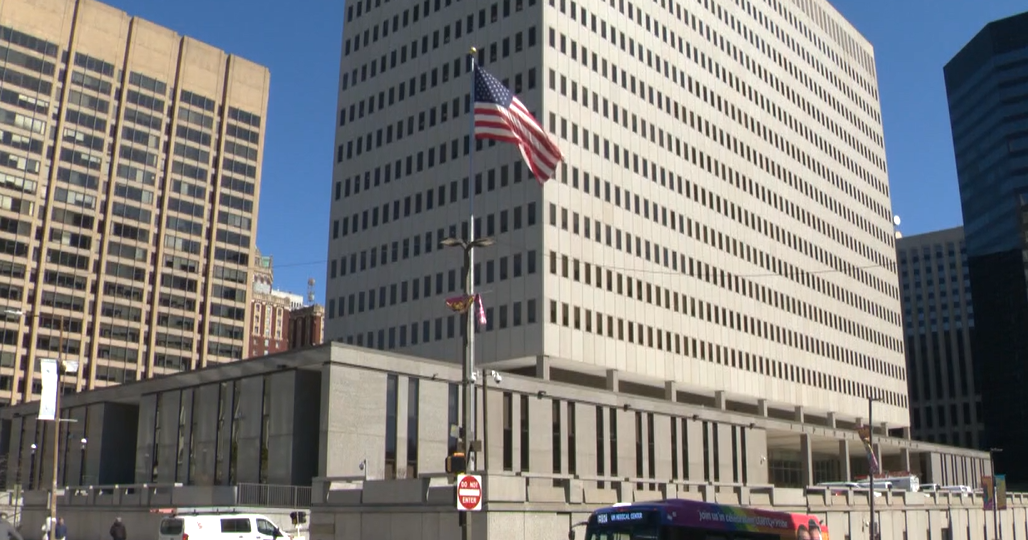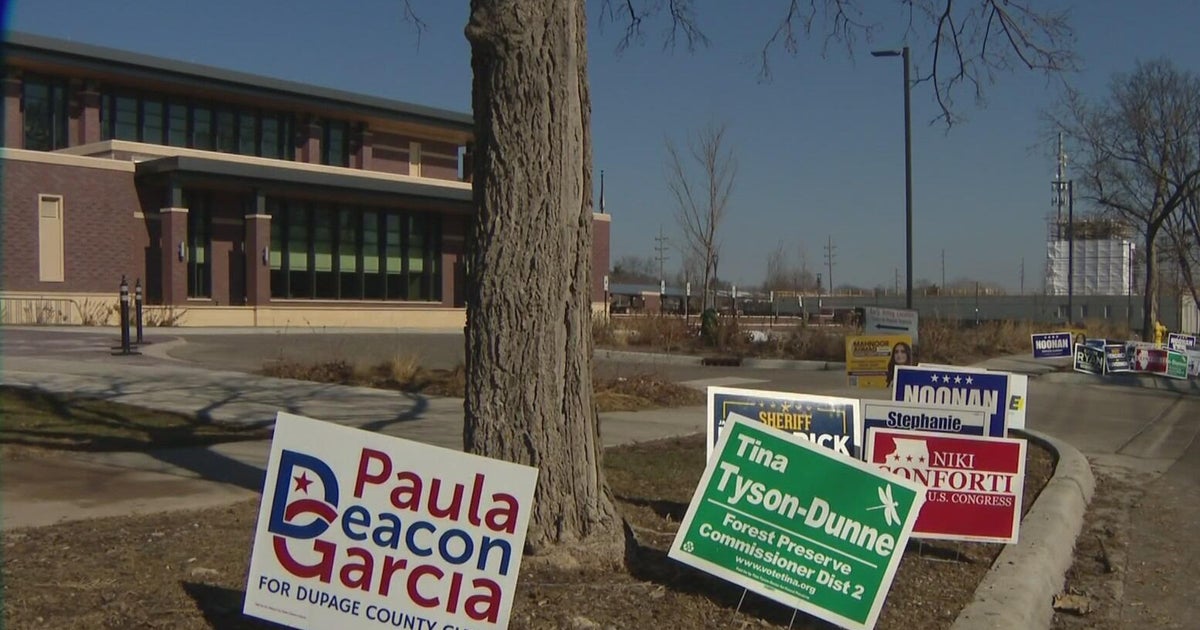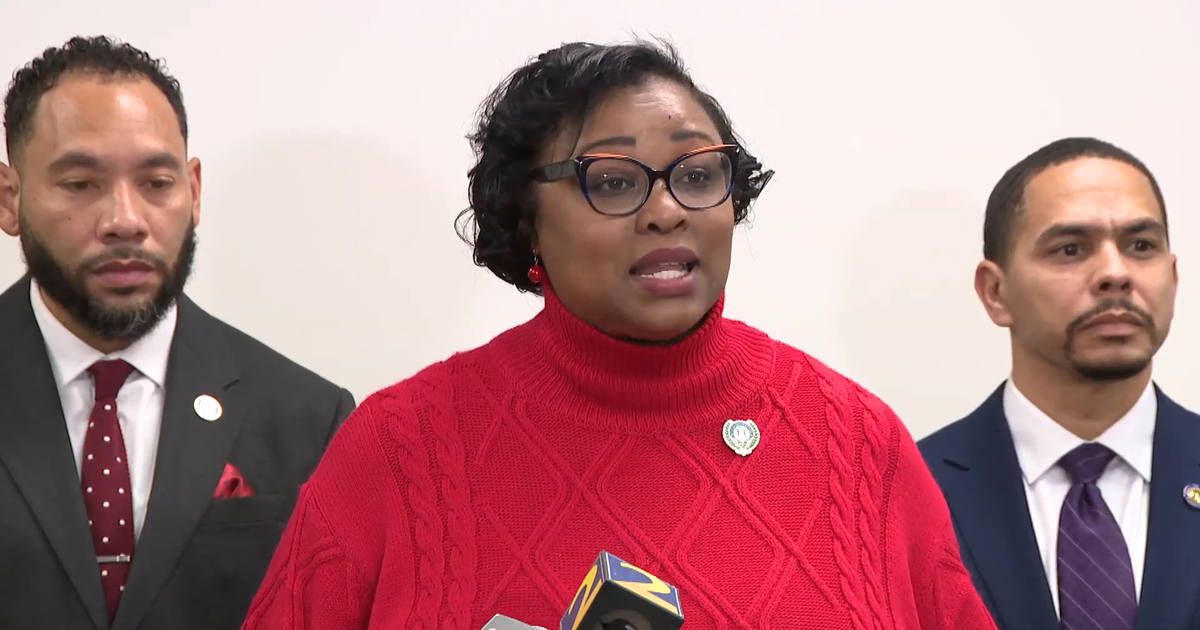Redistricting Special Session Begins In Maryland
ANNAPOLIS, Md. (AP) -- Democratic Gov. Martin O'Malley defended his congressional redistricting map on Monday as balanced and fair, while Republicans criticized it as a brazen attempt to oust one of their own and a Democratic congresswoman said it diluted minority representation.
Redistricting legislation for the state's eight representatives in the U.S. House of Representatives is the chief focus of a special session that began Monday in the Democratic-controlled Maryland General Assembly.
A committee on redistricting voted 10-4 to send the governor's plan to the full Senate, which gave the measure initial approval Monday evening.
"The map is balanced, and the map also is very mindful of the fact that we are a state with some tremendously strong diversity and many strong minority communities," O'Malley said. "There is no voting rights requirement that they all be packed into one district any more then there is a requirement that all non-minority peoples be packed into one district."
Republicans, however, attacked the plan as gerrymandering designed to make GOP Rep. Roscoe Bartlett vulnerable. Bartlett has represented the 6th Congressional district in western Maryland since 1993. The proposal would move more than 300,000 people from Montgomery County, a suburb of the nation's capital, into the western Maryland district.
"Most constituents, I feel, see through the governor's proposed map for what it is, and what it is it's an embarrassment to the Democratic process, an embarrassment to fair and good government, and I ask you to correct it or vote it down," Delegate Ron George, R-Anne Arundel, said during a legislative hearing.
But supporters say the map reflects changing demographics in Montgomery County and the Interstate 270 corridor.
On Monday night, the Senate rejected an amendment by Sen. E.J. Pipkin, R-Cecil, that would have replaced the governor's map with an alternative the senator said would have maintained rural representation in Bartlett's district while also adding a third majority-minority district.
The governor's proposal also has been opposed by Democratic Rep. Donna Edwards, who offered an alternative Monday she said addresses concerns about diluting minority voting strength.
Edwards, who represents the 4th Congressional district that includes both Montgomery and Prince George's counties, would lose all of Montgomery under the governor's proposal. Edwards said the governor's proposal deprives Montgomery County of the prospects of minority representation in any of the three congressional districts that would be in the county under the new map.
"We will not have a perfect map by any stretch, but we should come as close to perfect in representing the interests of all communities throughout our great state of Maryland as we can," Edwards told legislators during a hearing.
O'Malley said there was wide support for his proposal, and he responded to critics who say the minority vote is being diluted to put more Democrats in the Republican-held 6th Congressional District as holding "a very narrowly held view."
"I think the response to that is found in the vast majority of others who have looked at this map and found it to be fair and balanced," O'Malley said. "I think that is a very narrowly held view, and I don't mean to make light at all of the disruption that redistricting can cause for incumbent elected officials, both in terms of their primary and their general election outlooks."
Democrats currently hold a 6-2 margin over Republicans in the state's delegation to the U.S. House of Representatives.
Delegate Michael Hough, a Republican who represents Frederick and Washington counties, sponsored legislation that would create three majority-minority districts, instead of the two outlined by the governor. The Republican senator's plan has the backing of the Fannie Lou Hamer Political Action Committee, which is based in heavily Democratic Prince George's County.
That plan was rejected by a Senate redistricting committee late Monday afternoon, and the rejected amendment offered by Pipkin mirrored the proposal.
Carletta Fellows, a spokeswoman for Fannie Lou, said the governor's map dilutes the minority vote. She said the PAC would file a grievance with the U.S. Justice Department and file a lawsuit in federal court if the map wasn't changed to contain three majority-minority districts.
"The proposed map that I viewed last night on the Maryland state department of planning website is an egregious effort by the state to dilute the voting strength of African-Americans and Latinos in the state," Fellows said.
O'Malley also announced a 60-day regulatory review aimed at reducing duplicative regulations that could be slowing development and jobs growth. He said hearings this week should build consensus for a legislative package to spur job growth, to be considered in the regular session in January.
O'Malley also said Monday he is considering a state commission's preliminary recommendation to increase the state's gas tax by 15 cents a gallon over three years, by 5 cents a year as part of a plan to raise $800 million a year in new revenue for transportation.
(Copyright 2011 by The Associated Press. All Rights Reserved.)







